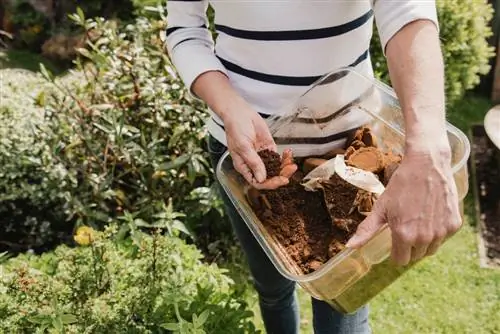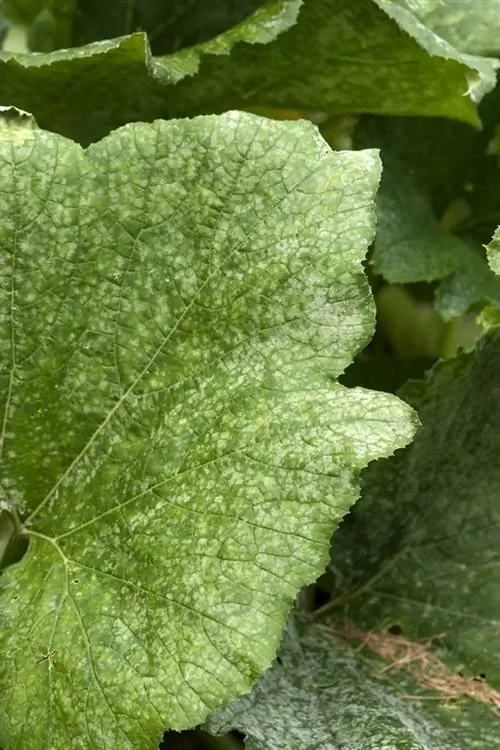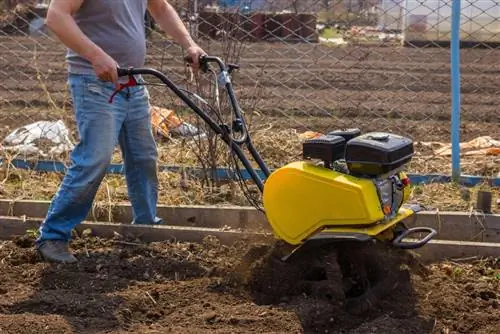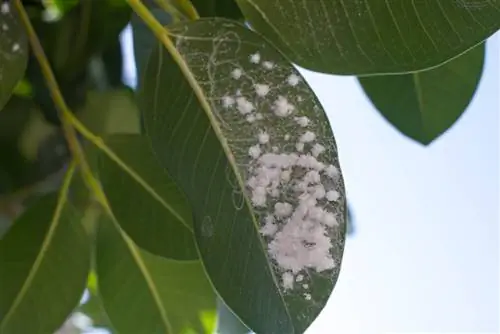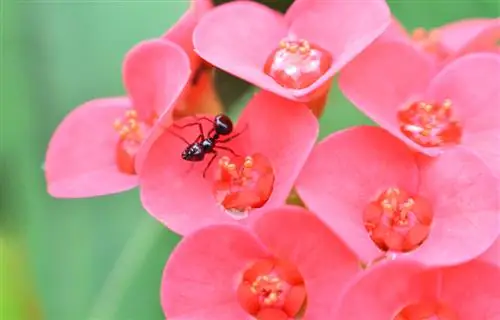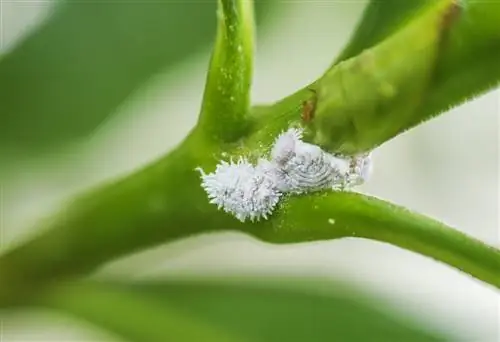- Author admin leonars@hobbygardeners.com.
- Public 2023-12-16 16:46.
- Last modified 2025-01-23 11:22.
Peat has had its day as a soil additive for acidic garden soil. To ensure that hydrangeas and ericaceous plants thrive, nature-loving hobby gardeners resort to effective home remedies that lower the pH value. You can find out how to acidify alkaline soil without peat here.
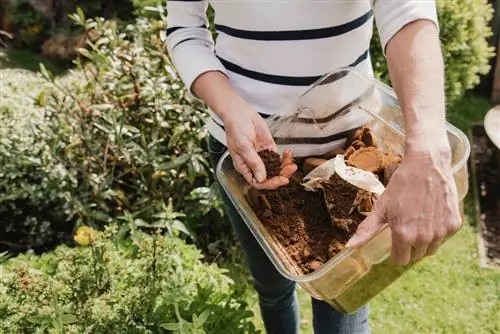
How can I acidify my garden soil without peat?
To acidify alkaline garden soil without peat, you can use coniferous compost, shredded oak leaves, granite flour or dried coffee grounds. Regular mulching and watering with rainwater helps to stabilize the pH value in the low-acid range.
Acidifying soil with coniferous compost
Pure compost made from conifer needles naturally has a low pH value. Spruces, firs, pines and other conifers provide the raw material. In the course of decomposition and hot rotting, compost is created with a pH value below 5. Acidifying the soil with coniferous compost can be done in these steps:
- Make your own compost from spruce and pine needles or buy it at the composting plant
- From March to October, ripen coniferous compost and spread it on the ground every 2 to 4 weeks (3-5 l per m²)
- Work in superficially and pour in again
While you are acidifying the soil with coniferous compost, please check the pH value regularly with a test set from the hardware store.
Oak leaves make garden soil acidic
Shredded oak leaves can acidify the soil as they decompose as mulch. This process takes a little more time than lowering the pH value with needle compost. Regular mulching with chopped oak leaves not only makes the soil acidic, but also effectively suppresses annoying weeds.
Acidifying soil with granite flour
Soil analysis experts advocate granite powder if hobby gardeners want to acidify the soil. Fine-grained granite powder (€15.00 at Amazon) is available at hardware stores, garden centers, Amazon or Ebay. How to lower the pH value in bed soil with granite powder:
- The best time is in spring on a calm day
- Apply granite powder by hand or with a spreader
- Recommended dosage: 200-300 g per m²
- Rake in the powder and pour in again
After two to four weeks, use a pH test to see if reapplication is necessary. By the way, granite flour is an excellent compost accelerator if you make coniferous compost yourself. Sprinkle a handful of granite powder between the stacked conifer needles.
Coffee grounds lower pH value
Natural hobby gardeners have discovered coffee grounds as a powerful home remedy for beds and balconies. Coffee grounds don't just fight voracious snails. At the same time, the coffee grains lower the pH value in the soil and promote growth with the nitrogen they contain. How to do it right:
- Drying coffee grounds
- Sprinkle thinly on bed soil or pot substrate
- Work in the coffee grains superficially with a rake or flower claw
- Sprinkle coffee grounds after every rain shower and watering
So that coffee grounds are not washed out again, mulch with oak leaves, pine needles or needle twigs.
Tip
Hard irrigation water torpedoes all efforts to acidify the garden soil. The high lime content causes the pH value to rise again within a short time. Regular watering with rainwater stabilizes the pH value in the low-acid range.

